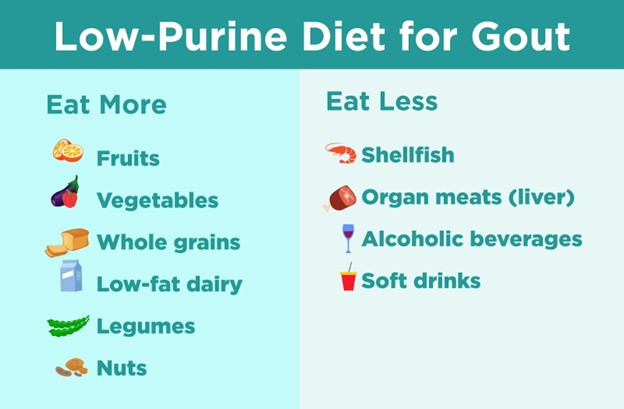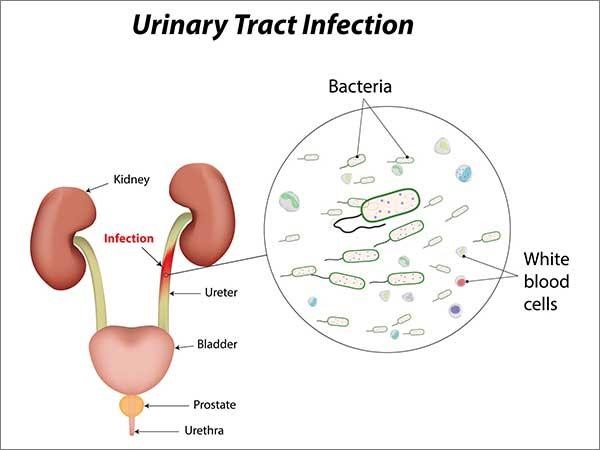A nurse is reinforcing teaching for a client about following a low-purine diet to manage gout. Which of the following statements should the nurse identify as an indication that the client understands the instructions?
I'll drink white wine, not red.
I'll limit the number of fruit servings I eat each day.
I'll avoid eating organ meats.
I'll choose red meat instead of poultry.
The Correct Answer is C
Choice A Reason: Drinking white wine, not red, is not an indication that the client understands the instructions, as both types of wine are high in purine and may trigger gout attacks.
Choice B Reason: Limiting the number of fruit servings I eat each day is not an indication that the client understands the instructions, as most fruits are low in purine and may help to lower uric acid levels.
Choice C Reason: Avoiding eating organ meats is an indication that the client understands the instructions, as organ meats are very high in purine and may increase uric acid levels and cause gout flare-ups.
Choice D Reason: Choosing red meat instead of poultry is not an indication that the client understands the instructions, as both red meat and poultry are high in purine and may worsen gout symptoms.

Nursing Test Bank
Naxlex Comprehensive Predictor Exams
Related Questions
Correct Answer is A
Explanation
Choice A Reason: Determining the client's calcium level is the appropriate action for the nurse to take, as it may indicate hypocalcemia, which is a possible complication of thyroidectomy due to accidental removal or damage of the parathyroid glands. Hypocalcemia can cause muscle spasms, tingling, numbness, or tetany.
Choice B Reason: Monitoring the client's peripheral pulses is not the appropriate action for the nurse to take, as it does not address the cause of muscle spasms or provide any relief.
Choice C Reason: Administering IV normal saline solution is not the appropriate action for the nurse to take, as it does not correct hypocalcemia or prevent further complications.
Choice D Reason: Giving the client an oral potassium supplement is not the appropriate action for the nurse to take, as it may worsen hypocalcemia or cause hyperkalemia, which can affect cardiac function and muscle contraction.
Correct Answer is B
Explanation
Choice A Reason: Black cohosh is not an herbal supplement that can help prevent UTIs, but it may be used for menopausal symptoms such as hot flashes, night sweats, or mood swings.
Choice B Reason: Cranberry juice is an herbal supplement that can help prevent UTIs, as it may inhibit bacterial adhesion to the urinary tract and lower urine pH.
Choice C Reason: Saw palmetto is not an herbal supplement that can help prevent UTIs, but it may be used for benign prostatic hyperplasia (BPH) symptoms such as urinary frequency, urgency, or hesitancy.
Choice D Reason: Echinacea is not an herbal supplement that can help prevent UTIs, but it may be used for immune system support or wound healing.

Whether you are a student looking to ace your exams or a practicing nurse seeking to enhance your expertise , our nursing education contents will empower you with the confidence and competence to make a difference in the lives of patients and become a respected leader in the healthcare field.
Visit Naxlex, invest in your future and unlock endless possibilities with our unparalleled nursing education contents today
Report Wrong Answer on the Current Question
Do you disagree with the answer? If yes, what is your expected answer? Explain.
Kindly be descriptive with the issue you are facing.
